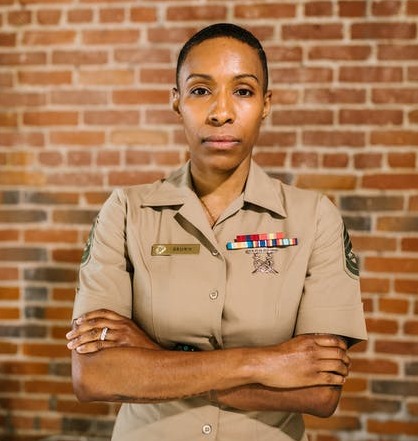Women are more susceptible to trauma than men and thus are more likely to experience traumatic experiences. In the military, certain types of trauma are disproportionately higher for women than their male peers. Dealing with the stressors of serving in the military, including combat and other forms of trauma, women serving in the military and female veterans may turn to drugs or alcohol to cope. This seemingly innocent means of temporary escape can quickly turn to addiction. Can women in the military overcome addiction?
Are There Military-Specific Traumas That Women Incur?
Due to the gender inequality that is so prolific in the military and the centuries of stereotypes surrounding soldiers and warfare, women with either active-duty or veteran status often face plenty of discrimination. They may have to work harder to prove themselves, only to be denied promotions or opportunities that less qualified male peers receive instead. This level of discrimination can lead to mental and emotional trauma.
Not only do women face discrimination, but also sexual harassment, threats, and sexual assaults. These experiences create lasting physical and emotional trauma that is difficult to understand or process. Women who experience sexual trauma often blame themselves or experience far-reaching amounts of shame. Combined with the trauma of combat, the level of trauma is much higher than their male counterparts who are veterans or currently serving in the military. Untreated trauma can lead to depression, anxiety, post-traumatic stress disorder (PTSD), substance abuse, and a significantly higher rate of suicidality, according to research.
What Is the Prevalence of Trauma for Active Duty and Veteran Women?
In a 2021 study published in the International Journal of Environmental Research and Public Health, statistics on the types of military-specific trauma amongst deployed women were listed. Some of the traumatic experiences surveyed were:
- 70% of women were exposed to combat
- 53% of women surveyed experienced combat fire
- 45% of women reported sexual harassment while deployed
This quantity of trauma is substantially higher than the average female population. The type of trauma witnessed in combat is often much different from some of the trauma non-military women experience. When left untreated, trauma amongst military and veteran women can have lasting consequences related to mental and physical health.
Why Does Military Trauma So Often Lead To Addiction?
Trauma is one of the most common factors in developing an addiction to drugs or alcohol. When the prevalence of trauma is higher in a specific population, the prevalence of substance abuse will also be higher.
For example, over half of the women surveyed above experienced depression, while approximately 26% suffered from PTSD symptoms. The number of deployed women who displayed signs of alcohol addiction was 12%. This percentage of women who abused alcohol is more than double the average rate for non-military women, which is only 5.5%, according to the National Institute on Alcohol Abuse and Alcoholism (NIAAA). This data indicates why so many women in the military experience a drug or alcohol addiction.
Why Military Women Need Trauma-Informed Care for Treatment for Addiction
Within addiction treatment, trauma-informed care refers to treatment that feels safe, offers both choice and collaboration, develops trustworthiness, and creates empowerment for women. These principles are essential in the healing process for women who have experienced problems of any kind due to specific physical and psychological symptoms associated with trauma.
Trauma-informed care in the treatment of addiction is vital for women serving or who have served in the military due to the extreme types of trauma they have experienced and the frequency of the various types of trauma. With so many women with active-duty or veteran status in the military, access to trauma-informed care is a serious health issue in our nation.
Finding Trauma-Informed Care to Treat Substance Abuse
One of the most challenging aspects of treatment for women who have experienced trauma relating to men is finding therapeutic relief that does not trigger their prior traumatic experiences. Because addiction treatment and research have traditionally focused on the needs of men, most facilities that treat both men and women can be triggering for women, leading to a less successful recovery.
Women in the military may struggle to find treatment for many reasons, including fear of repercussions related to their service. However, the United States military branches have realized that addiction and mental health services are common within the armed forces and have specific protections for those who need treatment. Additionally, TRICARE insurance covers treatment costs for substance abuse in approved facilities, allowing increased access for women with addiction.
Women in the military and female veterans are exposed to significant amounts of severe trauma. These types of trauma lead to an increase in the number of women with an addiction to drugs or alcohol. Finding trauma-informed care is crucial for healing from both trauma and addiction. The Ho Tai Way – Recovery For Women is a detox and residential treatment facility for women that is TRICARE authorized. We offer trauma-informed care as well as trauma-informed 12-Step meetings and She Recovers meetings. We are conveniently located near multiple military bases in Southern California to provide easy access to our military women and veterans. Our facility is located near balmy beaches in an environment that is safe, peaceful, and calming. We have plenty of experience serving active-duty and veteran women in the military who have experienced trauma. Contact The Ho Tai Way – Recovery for Women today at (714) 581-3974 to begin your healing.









